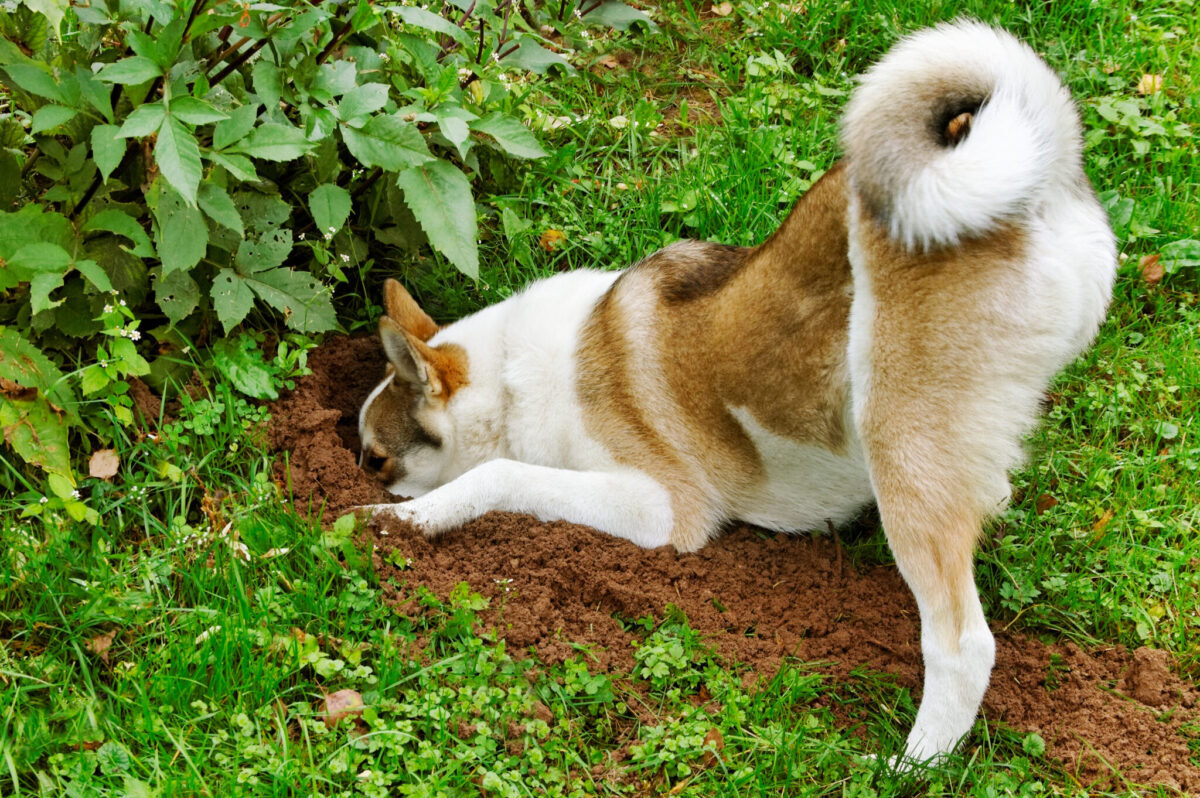
 Shutterstock
Shutterstock
Dogs are natural diggers, and while many believe they only dig to bury bones, there are several other reasons for this behavior. Digging is an instinct passed down from their wild ancestors, but modern dogs also dig for unexpected reasons like seeking comfort, entertainment, or regulating temperature. This behavior serves multiple purposes beyond hiding treasures. By understanding the various reasons dogs dig, pet owners can better manage it and create an environment where their dogs can thrive without causing excessive damage to their surroundings.
Instinctual Behavior from Their Ancestors
 Shutterstock
Shutterstock
One of the most fascinating reasons dogs dig is that it’s an instinctual behavior from their wild ancestors. In the wild, wolves and wild dogs would dig to create dens for protection from predators or to raise their young. Even though modern domesticated dogs no longer need to dig dens for survival, the instinct remains. This behavior is hardwired into their DNA, and many dogs dig to fulfill this primal urge. By understanding that digging is rooted in their ancestry, pet owners can appreciate the natural instinct behind this behavior.
Creating a Cool Spot to Lie Down
 Shutterstock
Shutterstock
Dogs may also dig to create a cool, comfortable place to lie down, especially in hot weather. By digging into the earth, dogs expose the cooler layers of soil beneath the surface, which helps them regulate their body temperature. This behavior is particularly common in outdoor dogs or dogs left in the yard for extended periods. Digging a shallow hole in the ground allows dogs to escape the heat, creating a comfortable, relaxing spot. This digging behavior is a practical way for dogs to stay cool when temperatures rise.
Hiding or Storing Food
 Shutterstock
Shutterstock
While burying bones is a well-known behavior, some dogs dig to hide or store other types of food as well. Dogs have a natural instinct to safeguard their resources, and digging a hole to bury food can help them protect it from other animals or save it for later. This behavior was essential for survival in the wild, as it allowed dogs to store food for times when resources were scarce. Even domesticated dogs with a steady food supply may exhibit this behavior to fulfill their natural instincts.
Relieving Boredom or Anxiety
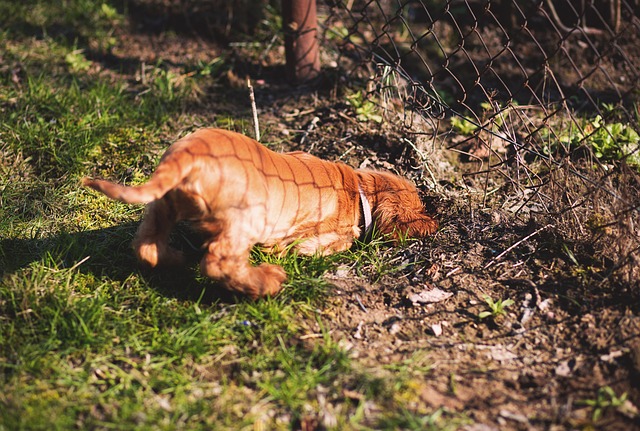 Shutterstock
Shutterstock
Digging can also be a sign that a dog is bored or anxious. Dogs that don’t get enough mental or physical stimulation may turn to digging to release pent-up energy or anxiety. This is especially common in high-energy breeds that require more exercise and interaction than they are receiving. When dogs are left alone for long periods or don’t have enough toys or activities to keep them occupied, digging becomes a way to entertain themselves. Plenty of exercise, mental stimulation, and attention can help reduce digging caused by boredom.
Seeking Comfort and Security
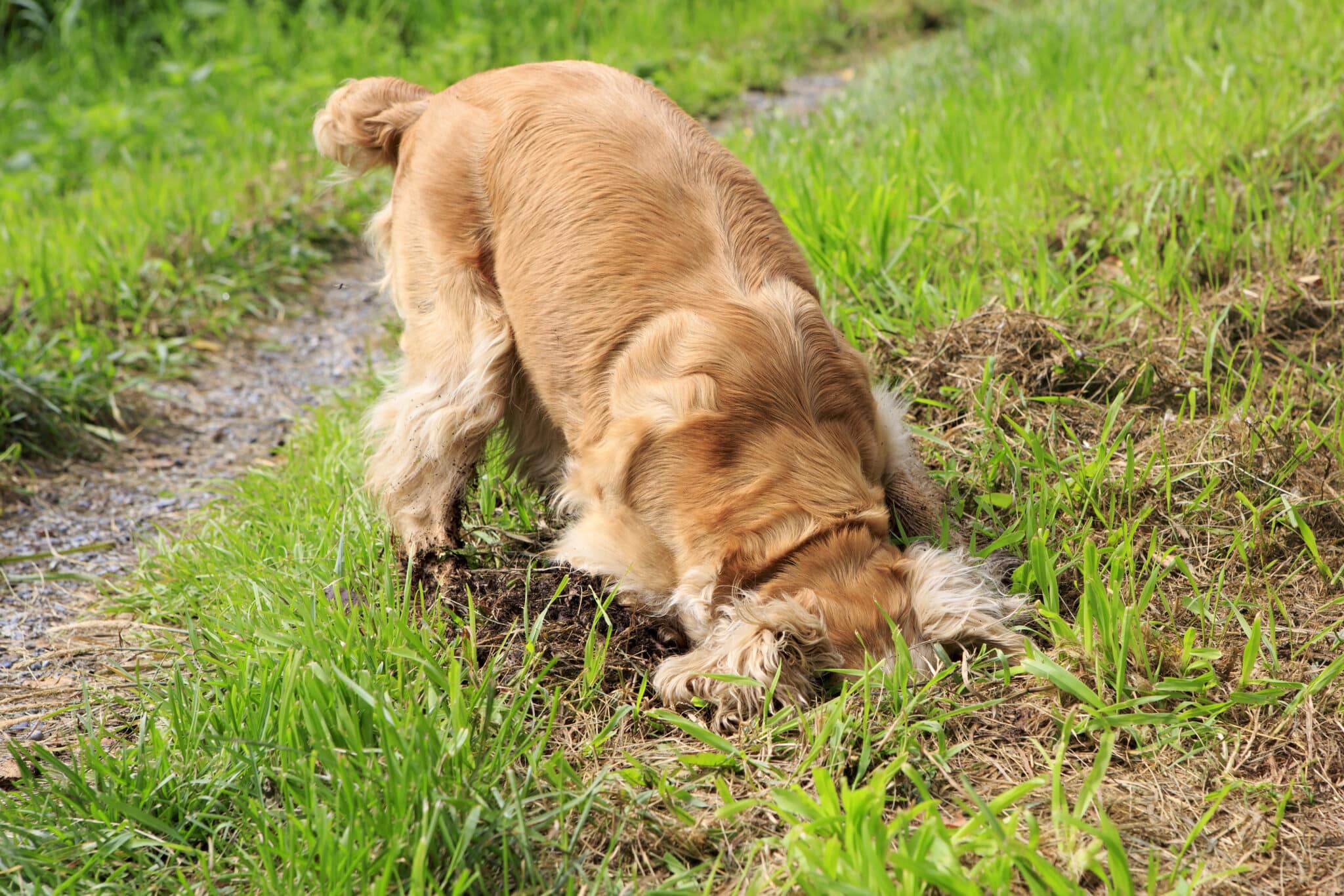 Shutterstock
Shutterstock
Dogs often dig to create a sense of comfort and security, particularly when they are feeling anxious or stressed. This behavior resembles how wild dogs dig dens to feel safe and secure. Digging a hole or rearranging their bedding helps dogs create a familiar and comfortable space. Dogs suffering from separation anxiety may dig to create a space that comforts them when their owners are away. Providing a cozy, safe area for the dog, such as a crate or bed, can help alleviate this type of digging behavior.
Mimicking Prey-Driven Behavior
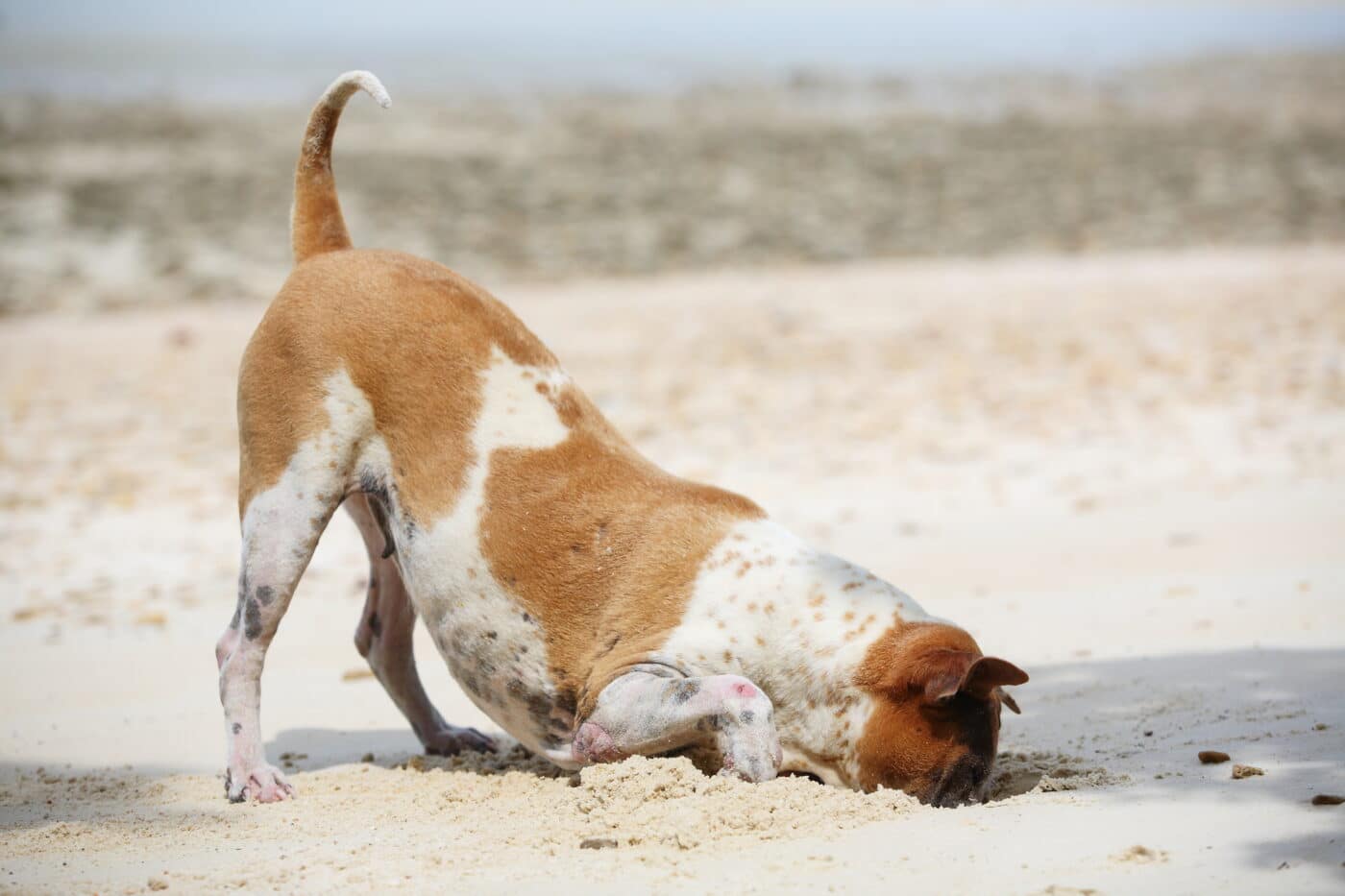 Shutterstock
Shutterstock
Some dogs dig as part of their prey-driven instincts. This is especially common in breeds with a strong hunting background, such as Terriers, who were originally bred to dig out burrowing animals like rabbits or rodents. Even if there is no actual prey present, these dogs may dig to mimic the behavior of hunting and catching small animals. This type of digging is often seen in areas of the yard or near the base of trees, where dogs believe they might find hidden prey. Understanding a dog’s prey instincts can help pet owners provide appropriate outlets for this behavior.
Marking Territory
 Shutterstock
Shutterstock
Digging can also be a way for dogs to mark their territory. Dogs have scent glands in their paws; when they dig, they leave their scent behind in the soil. This behavior communicates to other animals that the area belongs to them. By digging in a particular spot, dogs claim the space and signal to other animals that it is part of their territory. This territorial behavior is especially common in multi-dog households or areas other animals frequently visit, such as a backyard.
Escape Behavior
 Shutterstock
Shutterstock
In some cases, dogs dig to escape from a confined area. Dogs with a strong desire to explore or roam may try to dig under fences or gates to escape the yard. This is particularly common in dogs left alone for long periods or those with a high prey drive. They may dig to escape for adventure, food, or other animals. Preventing this type of digging may require reinforcing fences or gates and providing plenty of physical and mental stimulation to reduce the dog’s urge to escape.
Regulating Temperature in Cold Weather
 Shutterstock
Shutterstock
Just as dogs dig to cool down in hot weather, they may also dig to regulate their body temperature in cold weather. Dogs can protect themselves from the cold wind and retain body heat by digging a shallow hole and curling up in it. This behavior is another instinct from their wild ancestors, who dig dens to stay warm during cold seasons. Even though many modern dogs live in climate-controlled homes, those who spend time outdoors may still dig to create a warmer, more sheltered spot in chilly weather.
Investigating or Exploring New Scents
 Shutterstock
Shutterstock
Dogs have an incredibly powerful sense of smell; sometimes, they dig to investigate or explore interesting scents in the ground. Whether it’s the smell of other animals, food, or something unfamiliar, dogs may dig to get closer to the source of the scent. This behavior is particularly common in dogs that are naturally curious or have a strong sense of smell, such as scent hounds. By digging, dogs can get closer to whatever has captured their attention, allowing them to fully investigate the scent.
Expressing Natural Playfulness
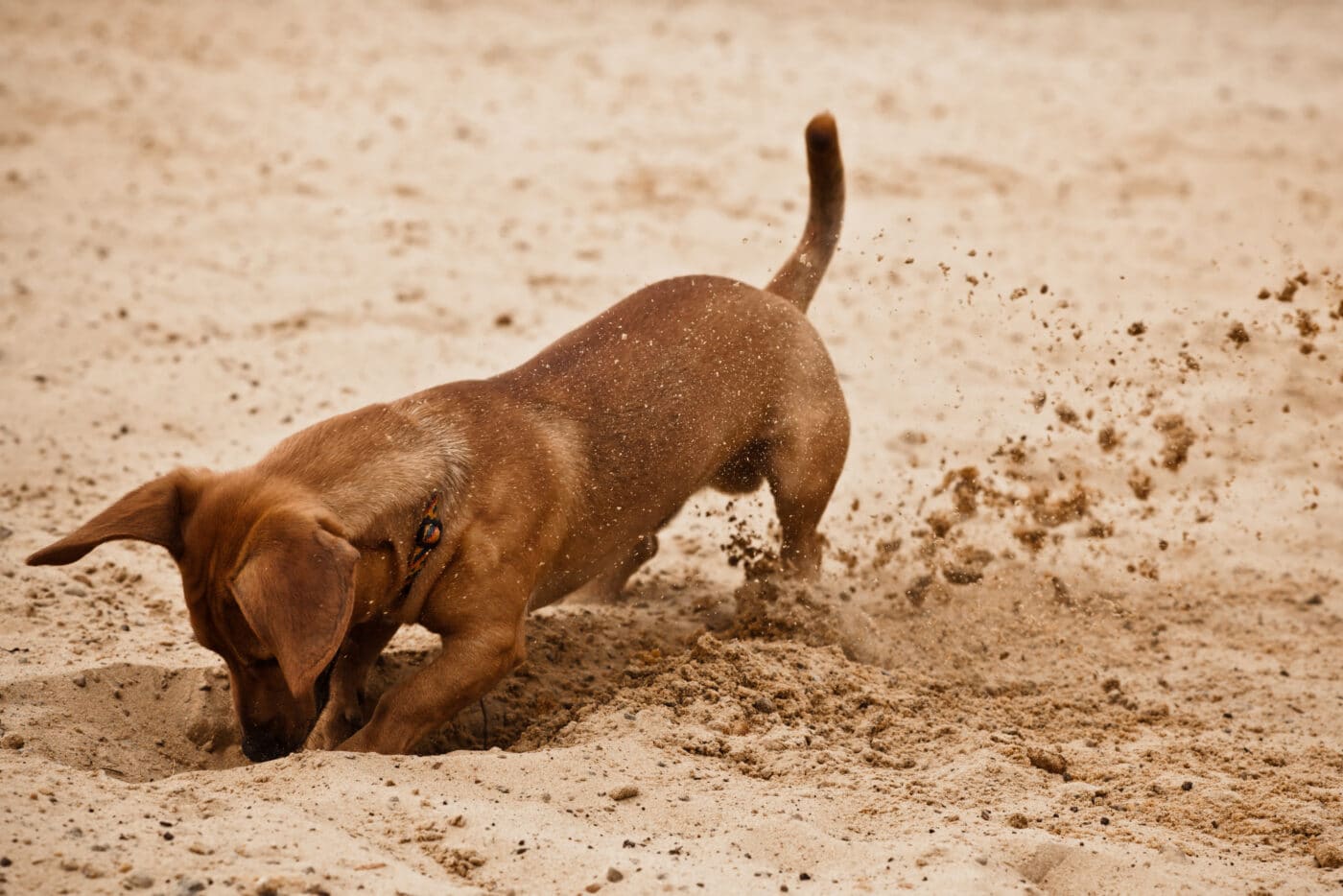 Shutterstock
Shutterstock
For some dogs, digging is simply a fun and playful activity. Dogs with playful personalities may dig as a way to entertain themselves or to engage with their environment. This is especially true for puppies or young dogs still exploring the world around them. Digging can be a form of play that helps them burn off excess energy and interact with their surroundings. For these dogs, digging may not have a specific purpose beyond enjoying the activity. Plenty of toys and interactive play can help channel this playful energy away from destructive digging.
The Fascination of Digging
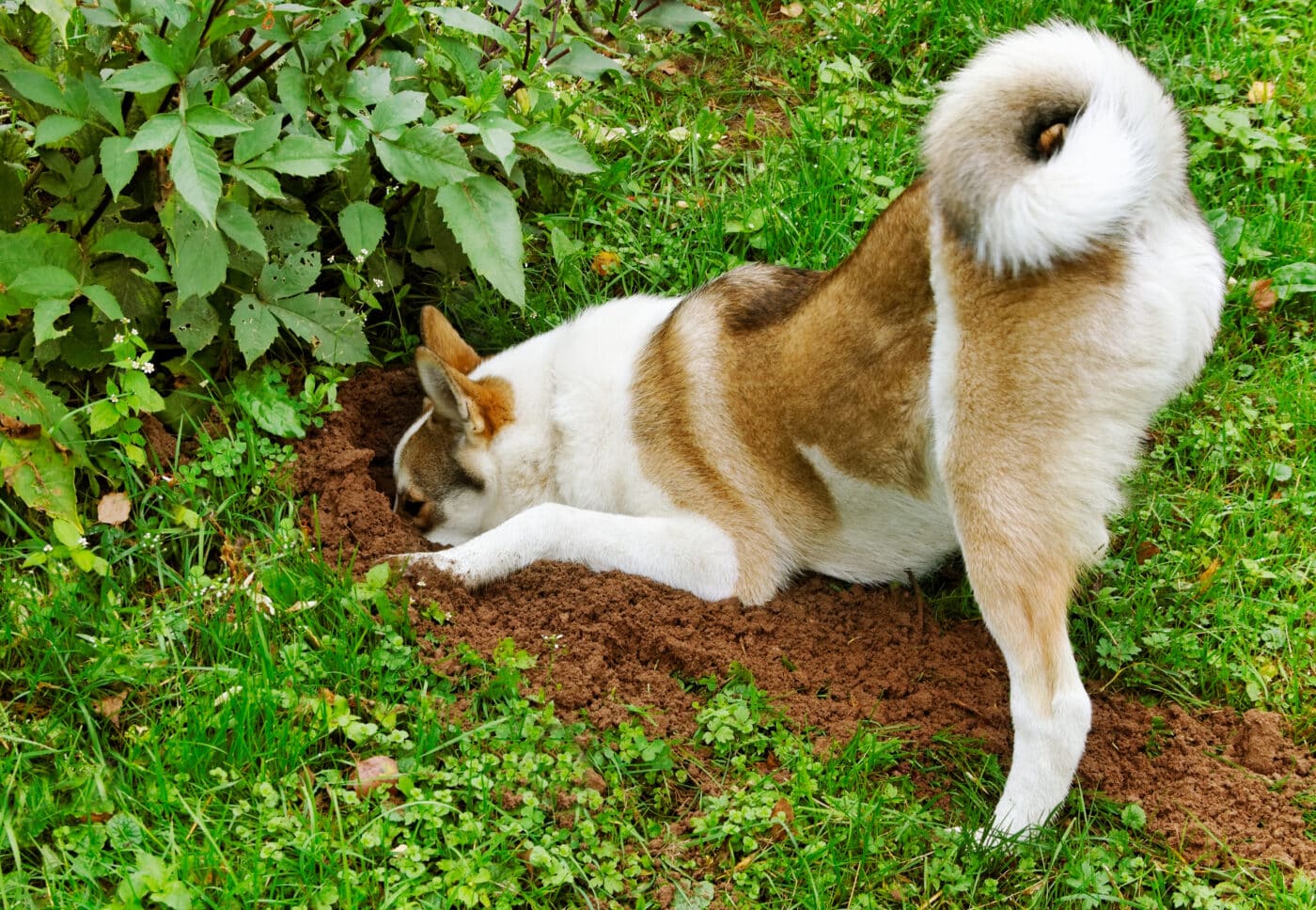 Shutterstock
Shutterstock
Dogs dig for a variety of fascinating reasons beyond burying bones. Whether driven by instinct, seeking comfort, or simply having fun, digging is a natural behavior that serves many purposes in a dog’s life. By understanding why dogs dig, pet owners can better manage this behavior and provide their dogs with appropriate outlets for their energy and instincts. Digging may be a normal part of canine behavior, but with the right approach, it can be directed to keep both dogs and their owners happy.

